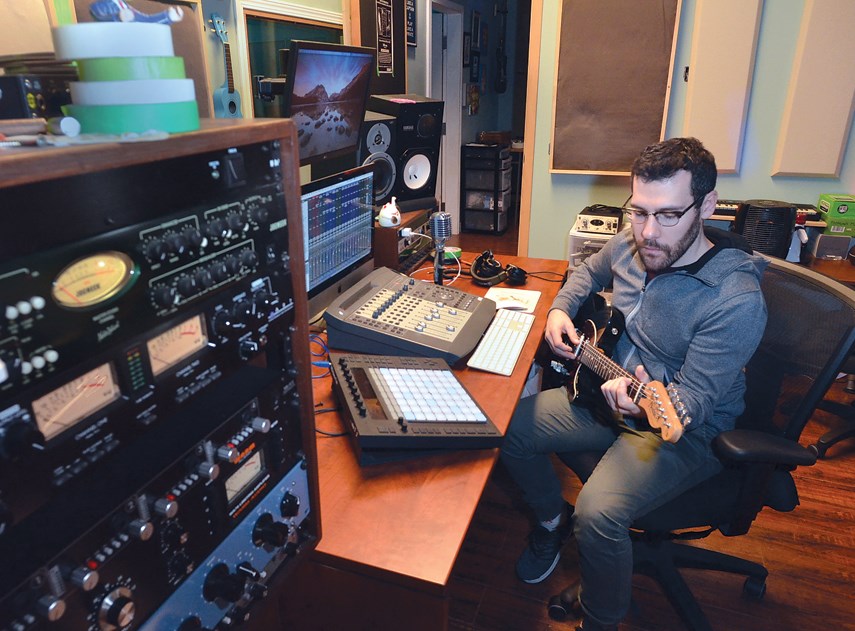Stuck in the back of the family van during the six-hour roadtrip from Montreal, Que. to Waterloo, Ont., the boy got lost.
Andy Schichter had a Discman, an album, and the beginnings of an obsession.
He was listening to Silverchair and loving it. The Australian rock band was melodic and ethereal and for Schichter, they became the wayback machine that brought him to the dawn of the concept album.
Silverchair had worked with Van Dyke Parks, the musician and songwriter who also collaborated with the Beach Boys.
“That kind of led me down a path of listening to Pet Sounds,” Schichter recalls. “And then when I discovered the Beatles properly, that changed my life.”
For a New York Times music critic, Sgt. Pepper’s Lonely Hearts Club Band was “dazzling but ultimately fraudulent.” Looking back a decade later, rock critic Lester Bangs charged that the album made musicians “even more self-conscious and pretentious than dope already had.”
But for Schichter, the grandiosity, introspection and experimentation of Sgt. Pepper’s was a portal into a self-enclosed world. It was majestic but it was also a puzzle.
How did they get it to sound like that?
“I was just so interested in the art and science behind what it takes to make a record,” he says.
Determined to find the sonic secret sauce, he studied music industry arts at Fanshawe College. It was between semesters that he got his first Pro Tools rig and started recording his friends.
“You never stop learning in the studio,” he says.
Schichter learned even more playing in folk-rock group Echo Nebraska. The band wrote, recorded and played bars, theatres, cafés and house concerts across Canada. But as they were about to come off the road in the fall of 2016, Schichter and bandmate Dan Ponich talked about doing something more permanent.
For an independent rock band, recording an album in Vancouver is often a decentralized process.
“I would always have to rent out a studio to record drums or crank a guitar amp,” Schichter explains.
But that day in Revelstoke, he and Ponich scrolled through Craigslist until they found 1,000 feet of commercial space in North Vancouver.
They drove to the industrial area on Columbia Street just a little east of the Ironworkers bridge and promptly fell in love.
“We lucked out,” he says. “I love Vancouver.”
They signed a three-year lease. And given the space, the neighbourhood and the ability to hit the drums as hard as they want, the rent is “pretty reasonable,” Schichter says.
For $350, a band can get the studio, as well as Schichter or Ponich, for 10 hours.
Bands don’t necessarily have a big recording budget, so finishing an album can sometimes take months with sessions scheduled around day jobs.
Since opening in 2017, the studio has also become something of a one-stop shop, offering marketing and artist management as well as hosting monthly concerts. On Jan. 18, the studio is presenting Noble Son, Dusknote & Jay Gavin. Tickets are $10 and include a beer.
Much like a dentist, the studio thrives on referrals.
“If a band or an artist has a good experience with you, they’re going to recommend you,” he says.
The studio has attracted occasional interest from hip hop artists and pop singers, at which point they politely decline. “That’s not really my area of expertise,” Schichter says.
At Park Sound Studios, he and Ponich cultivate a fairly specific type of music, he explains.
They’ve recorded the spiritual sound of Give Peace a Chant, the sweet vocals of Porteau and the uptempo groove of Dilemma Season and their song “Queens of Dundarave.” But if there’s a signature sound of the studio it’s melodic and layered and something a boy could get lost in while riding in the back of a van during a six-hour road trip.



